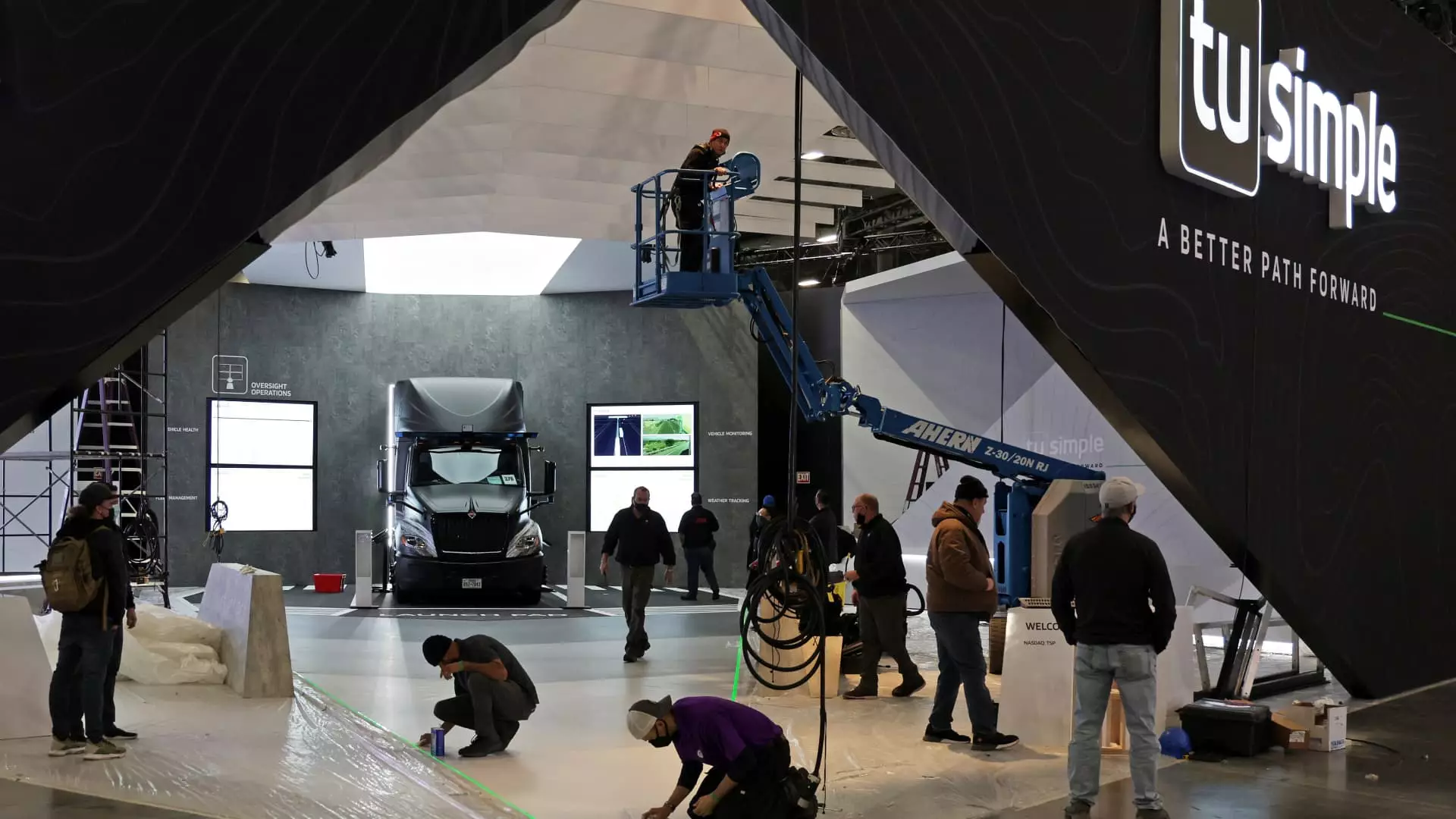The autonomous trucking industry has seen its fair share of challenges, with companies striving to carve out successful niches amidst a complex landscape of technical, regulatory, and market hurdles. One of the most significant shifts in this sector recently comes from CreateAI, formerly known as TuSimple. In a bold move, CreateAI has pivoted from its original mission of autonomous vehicle technology to focus on video games and animation, marking a significant transformation in its business strategy. This article will explore the implications of this rebranding, address the hurdles faced by the company, and evaluate the potential of its new direction.
In recent months, the once-booming sector of self-driving technology has started to distinguish itself from the stragglers, highlighted by the notable closure of General Motors’ Cruise robotaxi division. TuSimple, which operated across both U.S. and Chinese markets, faced several serious issues that ultimately precluded its survival in the autonomous driving niche. Safety concerns regarding its vehicles were compounded by financial difficulties, including a staggering $189 million settlement over a securities fraud lawsuit and subsequent Nasdaq delisting in early 2023. These issues painted a rather bleak picture for the company’s future in automation.
Faced with these setbacks, CreateAI’s leadership decided to reorient its focus towards areas that are less saturated with competition but may also promise substantial financial returns. Cheng Lu, who returned to lead the company, optimistically predicts that financial stability could be within reach by 2026 thanks to an anticipated video game influenced by the classical martial arts literature of Jin Yong. This pivot not only highlights the need for innovation but also reflects a broader trend of tech companies constantly recalibrating their goals to adapt to prevailing market conditions.
Cheng Lu has articulated an ambitious vision for CreateAI, which encompasses not only the gaming industry but also the burgeoning field of artificial intelligence. The company intends to leverage its previously garnered expertise in AI software development to create generative AI applications that could revolutionize video game design and animation production.
One of CreateAI’s flagship projects is the release of its AI model, Ruyi, which is designed to assist in visual content creation. The availability of Ruyi on the Hugging Face platform signifies CreateAI’s commitment to propelling its AI technologies forward. The management team, in concert with supportive shareholders, seems determined to effectuate this transformation and capitalize on the expansive opportunities offered by the gaming industry.
This rebranding also comes with a significant workforce expansion. Plans to increase the headcount from 300 to approximately 500 employees signal confidence in this new venture. Such growth is critical, as it underscores the company’s intent to build robust capacities in its newly chosen fields of gaming and animation.
Despite a forward-looking approach, there are considerable hurdles that CreateAI must navigate. The company needs to ensure it maintains compliance with U.S. restrictions on Chinese businesses, particularly concerning access to cutting-edge semiconductor technology crucial for AI development. Cheng reassures stakeholders that the company employs a combination of technological resources from both China and abroad. However, the potential impact of geopolitical tensions on operational strategies cannot be overlooked.
Moreover, the video game industry is notoriously challenging to break into, especially for companies with existing reputations in unrelated sectors. Even with promises of reducing production costs for “triple A” games by 70% over five to six years, the path to achieving this goal will require not only technical prowess but also adept market positioning and strategic partnerships—vital elements that will dictate CreateAI’s success.
As TuSimple transitions into CreateAI, the next few years will be crucial for assessing the viability of this strategic pivot. While the narrative surrounding autonomous vehicles has been overshadowed by unfortunate realities, CreateAI stands at a crossroads where it can potentially harness its legacy to foster innovation in the vastly different realms of gaming and animation. If successful, this transformation might serve as a testament to resilience in the face of adversity, showcasing how companies can navigate challenges to discover new avenues for growth.


Leave a Reply